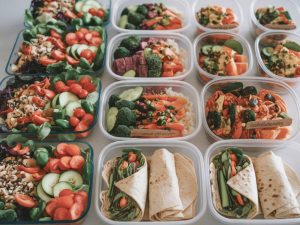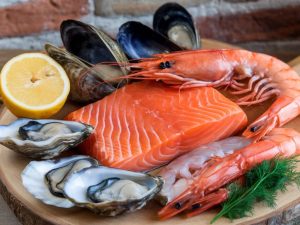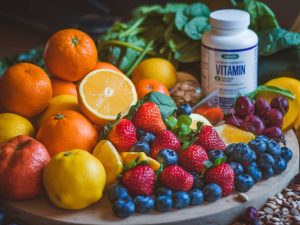How plant-based diets enhance athletic endurance

How plant-based diets enhance athletic endurance
Have you ever wondered how much of an impact your diet has on your athletic performance? While many athletes rely on protein-packed diets that center around animal products, there’s a growing movement in the fitness world embracing the power of plants. Plant-based diets are taking the spotlight for their role in enhancing endurance, optimizing recovery, and improving overall athletic health. Let’s dive into exactly how this lifestyle change might be the game-changer you’re looking for.
Fueling Your Muscles With Nature’s Best
One of the biggest myths surrounding plant-based diets is that they don’t provide enough protein to fuel intense athletic performance. But here’s the truth: plants are not only capable of meeting your protein needs, they also deliver a range of other nutrients that contribute to long-lasting endurance and resilience.
Legumes like lentils, chickpeas, and black beans are nutrient powerhouses packed with protein and fiber. Quinoa, chia seeds, and hemp seeds are similarly rich in amino acids, the building blocks your body needs to repair and grow muscles after a tough workout.
The best part? These foods don’t come loaded with cholesterol or excessive saturated fats like some animal-based options do. This means your blood flow remains smooth and efficient, delivering oxygen and nutrients to your muscles without unnecessary obstacles. The result: better stamina and sustained energy for those long training sessions or competitions.
Plant-Based Diets and Faster Recovery
Ever feel like your muscles are screaming for help after a grueling workout? Plant-based foods might just be the secret weapon for faster recovery. Fruits, vegetables, and whole grains are loaded with antioxidants and anti-inflammatory compounds that reduce muscle soreness and speed up your body’s ability to heal.
Think about berries packed with vitamin C and polyphenols, leafy greens like kale with their rich calcium content, or turmeric boasting potent anti-inflammatory properties. Incorporating these foods into your diet means less downtime between workouts and fewer chances of burnout. And as any athlete knows, recovery plays a critical role in improving overall performance. If your body isn’t struggling to repair itself, you’ll have more energy to focus on what truly matters: achieving your goals.
Heart Health Equals Endurance
Your endurance is directly tied to your heart’s ability to pump oxygen-rich blood to active muscles during exercise. Diets rich in whole plant-based foods have been proven to improve heart health by lowering cholesterol levels, reducing blood pressure, and enhancing circulation. When your cardiovascular system is running like a well-oiled machine, you can keep going stronger and longer.
For example, a bowl of oatmeal topped with fresh berries might seem simple, but it’s a powerhouse for your heart. The soluble fiber in oats helps to lower cholesterol, while the antioxidants in berries work to reduce inflammation and protect against oxidative stress. Little daily dietary choices like this can have big impacts on your endurance and overall health.
Energy Without the Crash
Have you ever felt like you’re running on fumes halfway through a workout? The culprit could be your energy sources. While refined sugars or carb-heavy snacks might give you a short-term energy boost, they often lead to a dreaded crash later on. Plant-based diets, on the other hand, focus on whole, complex carbohydrates that provide steady, long-lasting energy.
Sweet potatoes, brown rice, and whole-grain bread offer slow-release energy to keep you moving without any unpleasant dips. Pair them with nutrient-dense vegetables and plant-based protein sources like tofu or tempeh, and you have a meal that fuels you throughout the day without leaving you sluggish.
Real-Life Success Stories
Still skeptical? Let’s look at some real-world examples of plant-based athletes who dominate their fields. Venus Williams, a tennis legend, adopted a mostly plant-based diet to manage autoimmune conditions and credits it for her sustained success on the court. Ultramarathon runner Scott Jurek relies entirely on a plant-based lifestyle, smashing records in races spanning hundreds of miles. And let’s not forget bodybuilder Torre Washington, who proves that plant-based diets are also more than capable of supporting muscle growth and strength.
The takeaway here is clear: making the switch to plants doesn’t limit your potential—it amplifies it. So why not take inspiration from these pros and see where it could lead you?
Practical Tips for Getting Started
If you’re considering adding more plants to your plate, here are some tips to make the transition seamless:
- Start Small: Aim for one plant-based meal a day. A hearty veggie stir-fry or oatmeal packed with nuts and fruits is a great way to ease in.
- Plan Ahead: Batch-cooking meals like lentil curries or quinoa salads can save you time and ensure you’re ready to refuel after workouts.
- Experiment: Have fun exploring new recipes that center around plant-based proteins, whole grains, and colorful veggies.
- Supplement Wisely: While most nutrients can be easily obtained through plants, consider supplementing vitamin B12, which is typically found in animal products.
Breaking Down Misconceptions
One of the biggest roadblocks for people considering a plant-based diet is the fear of nutritional deficiencies or losing muscle. But when done correctly, plant-based diets are nutritionally complete and provide everything your body needs to thrive as an athlete. The key is variety. Load your plate with different plant-based foods to ensure you’re meeting your macro and micronutrient requirements.
And remember, switching to a plant-based diet isn’t an all-or-nothing commitment. You don’t have to give up your favorite foods overnight. Small, meaningful changes can still have a big positive impact on your performance and endurance over time.
A Healthier, Stronger You
It’s no secret that what you eat plays a monumental role in how you perform, recover, and feel as an athlete. Plant-based diets are not only sustainable for the environment, but they’re also a powerhouse for promoting long-term health and enhancing endurance. Whether you’re training for a marathon, crushing it in the gym, or simply looking to feel your best, fueling your body with plants can bring you closer to your goals than you’ve ever imagined.
So, why not take the leap? Your body—and your performance—will thank you.






